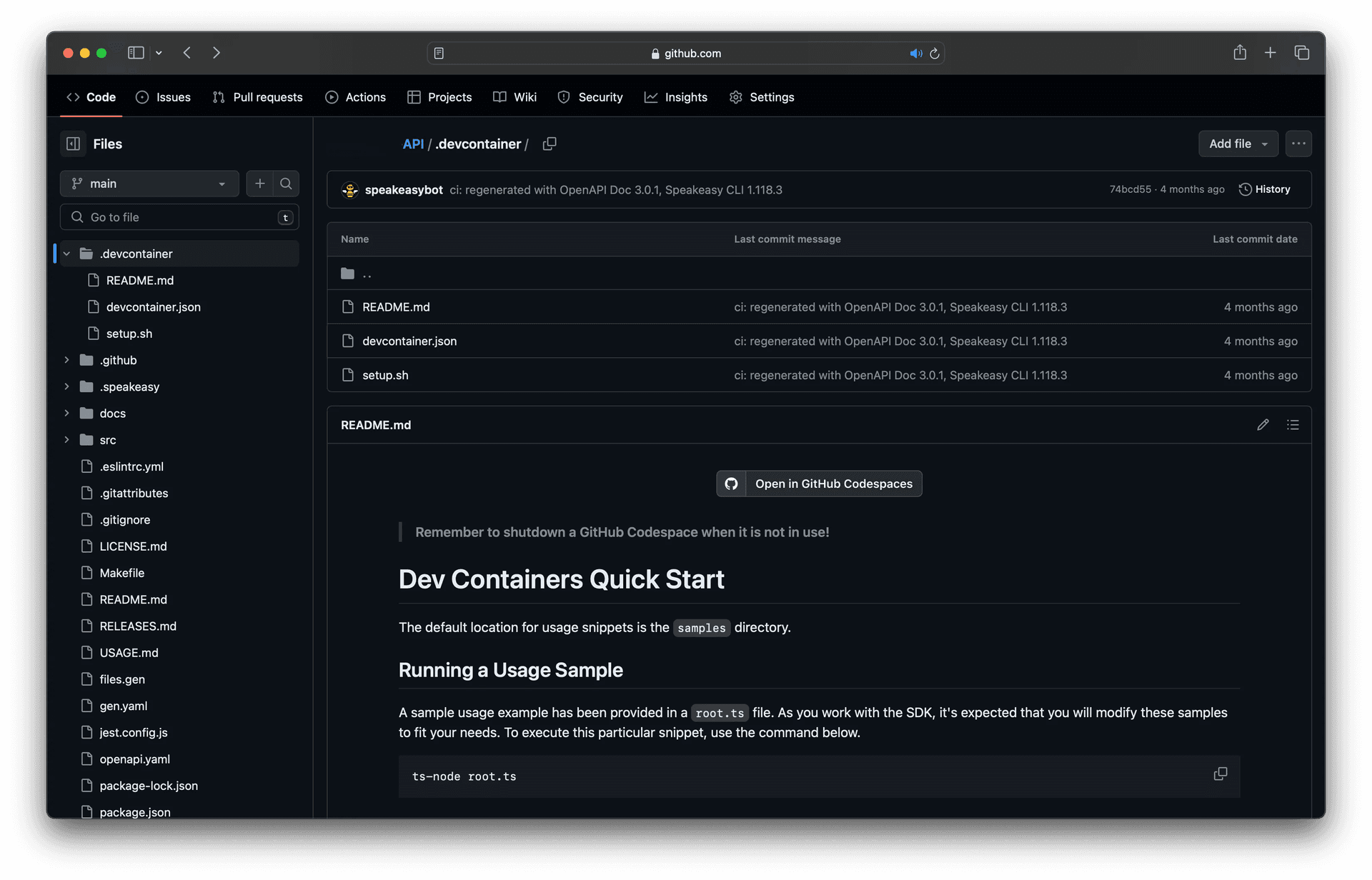SDK Sandboxes
Speakeasy can generate dev container configurations for SDK repositories to provide an intuitive, predefined sandbox environment to explore SDK capabilities. Beyond setting up this environment, Speakeasy has CLI commands that allow SDK users to effortlessly generate example usage snippets for any API operation within this container setting.
Tip
SDK Sandboxes are currently available in Go, TypeScript, and Python SDKs.Configuring SDK Sandboxes
To set up the automatically generated dev container configurations, make minor adjustments to the gen.yaml file. The schemaPath shown below should reference the SDK’s OpenAPI document, which can be a local path or a remote URL.
Dev container gen.yaml:
configVersion: 1.0.0
generation:
devContainers:
enabled: true
schemaPath: ./openapi.yamlGeneration will create a .devcontainer directory containing a configuration file similar to below.
Generated devcontainer.json:
// For format details, see https://aka.ms/devcontainer.json. For config options, see the
// README at: https://github.com/devcontainers/templates/tree/main/src/go
{
"name": "Go",
"image": "mcr.microsoft.com/devcontainers/go:1-1.20-bullseye",
// Features to add to the dev container. More info: https://containers.dev/features.
// "features": {},
// Use 'forwardPorts' to make a list of ports inside the container available locally.
// "forwardPorts": [],
// Use 'postCreateCommand' to run commands after the container is created.
"postCreateCommand": "sudo chmod +x ./.devcontainer/setup.sh && ./.devcontainer/setup.sh",
"customizations": {
"vscode": {
"extensions": [
"golang.go",
"github.vscode-pull-request-github" // Github interaction
],
"settings": {
"files.eol": "\n",
"editor.formatOnSave": true,
"go.buildTags": "",
"go.toolsEnvVars": {
"CGO_ENABLED": "0"
},
"go.useLanguageServer": true,
"go.testEnvVars": {
"CGO_ENABLED": "1"
},
"go.testFlags": [
"-v",
"-race"
],
"go.testTimeout": "60s",
"go.coverOnSingleTest": true,
"go.coverOnSingleTestFile": true,
"go.coverOnTestPackage": true,
"go.lintTool": "golangci-lint",
"go.lintOnSave": "package",
"[go]": {
"editor.codeActionsOnSave": {
"source.organizeImports": true
}
},
"gopls": {
"usePlaceholders": false,
"staticcheck": true,
"vulncheck": "Imports"
}
}
},
"codespaces": {
"openFiles": [
".devcontainer/README.md"
]
}
}
// Uncomment to connect as root instead. More info: https://aka.ms/dev-containers-non-root.
// "remoteUser": "root"
}Using SDK Sandboxes in the browser
SDK users can instantly initialize a sandbox in GitHub Codespaces

Last updated on